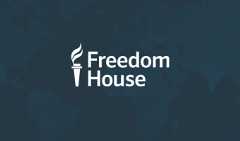

Costa Rica
Costa Rica has a long history of democratic stability, with a multiparty political system and regular rotations of power through credible elections. Freedoms of expression and association are robust. The rule of law is generally strong, though presidents have often been implicated in corruption scandals. Among other ongoing concerns, violence related to drug trafficking and organized crime is rising sharply.
Research & Recommendations
Costa Rica
| PRPolitical Rights | 3840 |
| CLCivil Liberties | 5360 |
Overview
Costa Rica has a long history of democratic stability, with a multiparty political system and regular rotations of power through credible elections. Freedoms of expression and association are robust. The rule of law is generally strong, though presidents have often been implicated in corruption scandals. Among other ongoing concerns, violence related to drug trafficking and organized crime is rising sharply.
In countries where democratic forces have come to power after periods of antidemocratic rule, the new governments should pursue an agenda that protects and expands freedoms even as it delivers tangible economic and social benefits to citizens.
These countries must act swiftly to release all political prisoners, build or revitalize democratic institutions, reform police and other security forces, organize and hold competitive multiparty elections, and ensure accountability for past human rights violations.
In countries where there has been significant erosion of political rights and civil liberties, policymakers, legislators, jurists, civic activists, and donor communities should work to strengthen institutional guardrails and norms that serve to constrain elected leaders with antidemocratic or illiberal aims.
Costa Rica
| AObstacles to Access | 2225 |
| BLimits on Content | 3235 |
| CViolations of User Rights | 3240 |
Political Overview
Costa Rica has a long history of democratic stability, with a multiparty political system and regular rotations of power through credible elections. Freedoms of expression and association are robust. The rule of law is generally strong, though presidents have often been implicated in corruption scandals. Among other ongoing concerns, violence related to drug trafficking and organized crime is rising sharply.
Freedom of expression online has been and is increasingly under attack as governments shut off internet connectivity, block social media platforms, and restrict access to websites that host political, social, and religious speech. Protecting freedom of expression will require strong legal and regulatory safeguards for digital communications.
Governments should encourage a whole-of-society approach to fostering a high-quality, diverse, and trustworthy information space. The Global Declaration on Information Integrity Online identifies best practices for safeguarding the information ecosystem, to which governments should adhere.
Comprehensive data-protection regulations and industry policies on data protection are essential for upholding privacy and combating disproportionate government surveillance, but they require careful crafting to ensure that they do not contribute to internet fragmentation—the siloing of the global internet into nation-based segments—and cannot be used by governments to undermine privacy and other fundamental freedoms.






